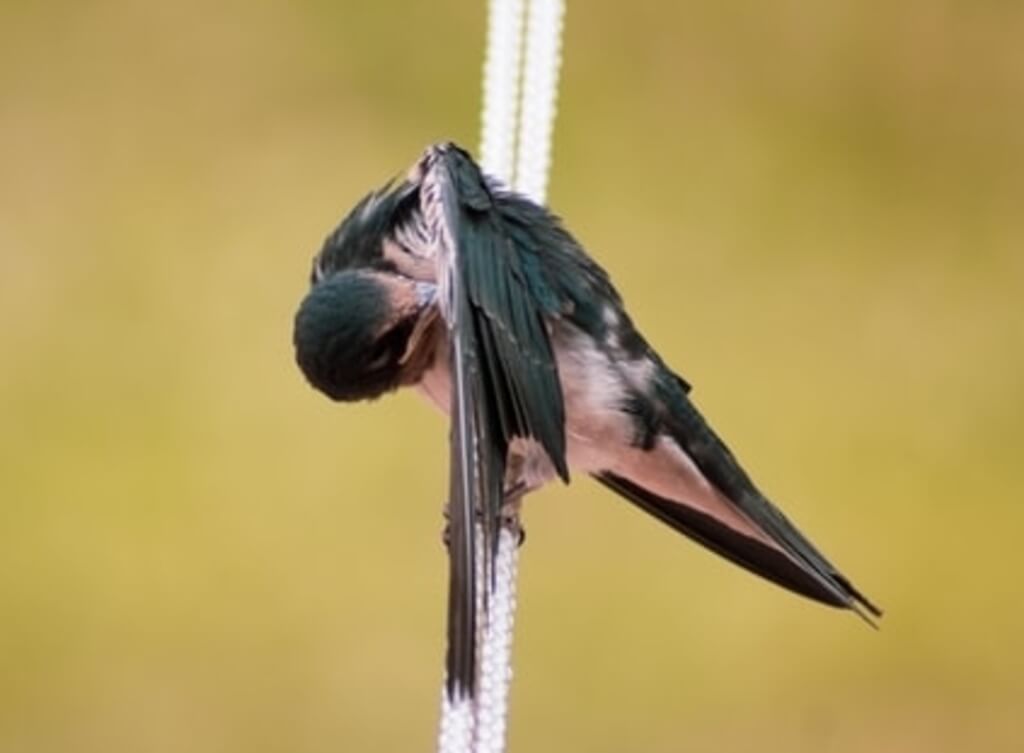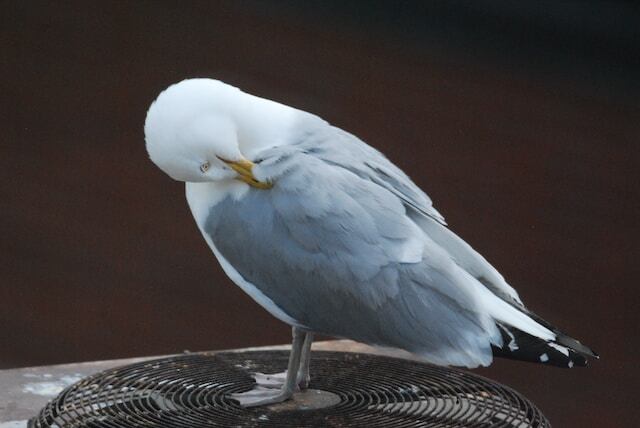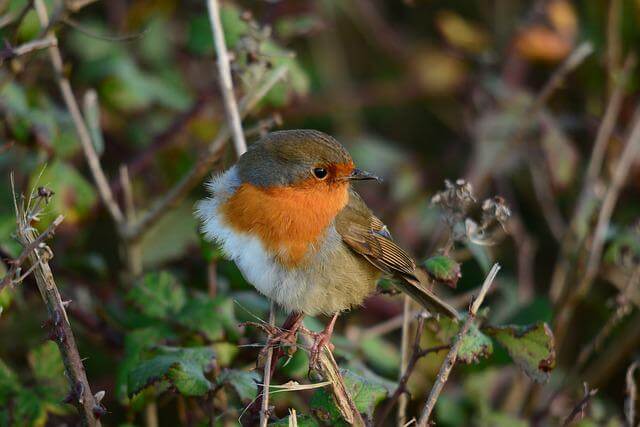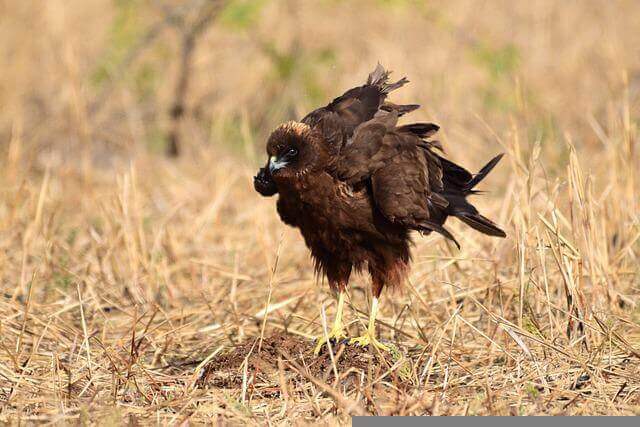Birds are interesting creatures with a lot of mysteries about them. They can be found all over the world and there are many different types of birds that exist.
However, one question that gets asked very often is can birds get fleas. In this article we will take a closer look at it this topic and explore the reasons why.
Table of Contents
- 1 Key Takeaways
- 2 Can birds get fleas?
- 3 Can birds get fleas from dogs?
- 4 How do I know if my birds have fleas?
- 5 How to get rid of fleas on birds?
- 6 Can birds get fleas from cats?
- 7 Can budgies get fleas?
- 8 Can cockatiels get fleas?
- 9 Can African gray parrots get fleas?
- 10 Can parakeets get fleas?
- 11 Can bird fleas live on humans?
- 12 How to get rid of bird fleas in the house?
- 13 Can wild birds get fleas?
- 14 Can you get fleas from birds?
- 15 Can lovebirds get fleas?
- 16 Do birds eat fleas?
- 17 Can pet birds get fleas?
- 18 Is flea spray safe for birds?
- 19 What kills fleas instantly in house?
- 20 How do bird mites look like?
- 21 How do I get rid of mites in my bird cage?
- 22 Author
Key Takeaways
- Birds can indeed get fleas, but avian fleas are typically host-specific and don’t infest humans or other animals.
- Fleas on birds can lead to discomfort, feather damage, and potential health issues, making prevention and treatment important.
- Maintaining a clean and hygienic bird habitat is essential to reduce the risk of fleas.
- Regularly inspecting and grooming your pet birds can help detect and address flea infestations early.
- Consult with a veterinarian if you suspect your bird has fleas for appropriate treatment and guidance.
Can birds get fleas?
Yes, birds can get fleas. Fleas are most commonly found on dogs and cats, but they can also infest other animals, including birds.
Fleas are small, brown insects that feed on the blood of their hosts. They can cause skin irritation and itching and can transmit diseases.
Birds can get fleas from exposure to infested animals or from contact with flea eggs or larvae. Treatment for bird fleas includes the use of topical or systemic insecticides.
Can birds get fleas from dogs?
Yes, birds can get fleas from dogs. In fact, fleas are very common parasites that can infest both dogs and birds. Fleas are small, brownish insects that feed on the blood of their hosts.
They can cause serious health problems in both dogs and birds, so it is important to take steps to protect your pet from fleas.
There are a number of effective flea treatments available, so talk to your veterinarian about the best way to protect your pet from these pests.
How do I know if my birds have fleas?
Fleas are small, dark brown parasites that live on the blood of mammals and birds. They can be very difficult to see and are often only discovered when they are jumping around.
Adult fleas can lay up to 50 eggs a day, so it is important to take action if you think your bird may have them. There are a few ways to tell if your bird has fleas.
One is to look for signs of skin irritation or feather loss. Fleas can cause a lot of scratching and can lead to bald patches. Another way to tell is by checking for black specks in the bird’s feathers or on its skin.
These are flea droppings and indicate that an infestation is present. Finally, you can try catching a flea and looking at it under a microscope.
How to get rid of fleas on birds?
There are a few different ways to get rid of fleas on birds. One way is to use a flea comb. Combing the bird’s feathers regularly with a flea comb can help remove any fleas that are present.
Another way is to give the bird a bath in warm water and dish soap. This will kill any fleas that are present on the bird.
Finally, you can use a spray or powder made specifically for getting rid of fleas on birds. Applying this regularly should help keep the bird free of fleas.
Can birds get fleas from cats?
Yes, birds can get fleas from cats. Fleas are tiny parasites that live on the skin and fur of animals and feed on their blood. They can cause a lot of discomfort for pets, and can also spread disease. Cats are particularly prone to flea infestations, but any warm-blooded animal can be affected.
Birds can pick up fleas from contact with infected cats, or from exposure to areas where there are high numbers of fleas present. If you have a bird and a cat, it is important to take steps to prevent the spread of fleas between them.
This includes using flea control products on both animals, keeping them groomed and free of parasites, and regular vacuuming of the home to remove any stray fleas.
Can budgies get fleas?
Budgies are common household pets that can get fleas. Although they are small, budgies can be a host for fleas and can contract the parasites from other animals.
Fleas thrive in warm, humid environments and feed on the blood of their hosts. Symptoms of a flea infestation in budgies include excessive scratching, feather loss, and redness around the vent.
Treatment for a flea infestation includes environmental cleaning, treating the birds with a topical flea treatment, and using an insecticide to kill the fleas in the environment.
Prevention of flea infestations includes monthly topical treatments and environmental management.
Can cockatiels get fleas?
Yes, cockatiels can get fleas just like any other animal. Fleas are small, parasitic insects that can attach themselves to the skin of a host and feed on their blood.
While they typically prefer to feed on dogs and cats, they will also bite other animals such as birds. Fleas can cause a number of problems for cockatiels, including skin irritation, anemia, and even death.
Fleas are often spread through contact with infected animals or by coming into contact with infested areas. They can also be carried in the fur or feathers of infected animals.
If you think your cockatiel may have fleas, you should take them to a veterinarian for diagnosis and treatment. Treatment typically involves the use of insecticides or other medications to kill the fleas.
Can African gray parrots get fleas?
Yes, African gray parrots do get fleas. They are susceptible to the same kinds of fleas that affect dogs and cats. Fleas can cause anemia in birds, so it is important to keep your bird free of them.
There are a number of products available to treat bird fleas, but you should always consult with your veterinarian before using any kind of medication on your pet.
Can parakeets get fleas?
Can parakeets get fleas? This is a question that many parakeet owners may ask. The answer to this question is yes, parakeets can get fleas. Just like any other animal, if a parakeet is around a flea-infested area or if their cage is close to a cat or dog that has fleas, they can get them.
There are several signs that your parakeet may have fleas. One sign is if your bird is constantly scratching its head or body. Another sign is if you see small black dots on your bird’s feathers. These black dots are actually flea droppings.
If you see any of these signs, it’s important to take your bird to the veterinarian for treatment. The good news is that there are several effective treatments for fleas available from veterinarians.
Can bird fleas live on humans?
Fleas are not just a problem for pets. They may also bite people, although they cannot live on you. Fleas are small, reddish-brown parasites that feed on the blood of their hosts.
While they prefer to feed on animals, they will also bite humans if there is no other host available. Flea bites can cause skin irritation and itching. In extreme cases, flea bites can lead to an infection called flea-bite fever.
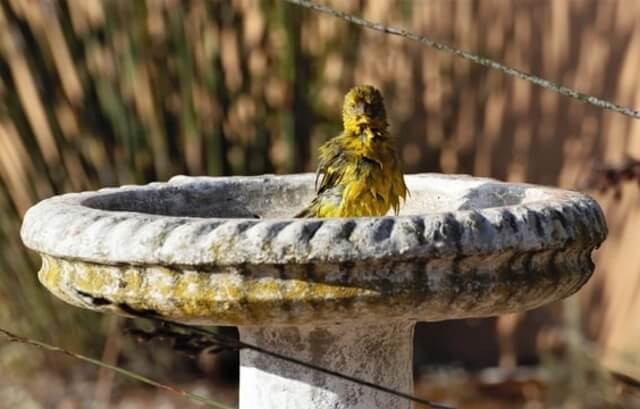
How to get rid of bird fleas in the house?
Fleas are a common problem for both indoor and outdoor pets. However, bird fleas can be a particular nuisance in the home, as they tend to thrive in warmer climates and are well-adapted to living on human blood. If you have been dealing with an infestation of bird fleas, here are five steps that you can take to get rid of them:
1. Vacuum your home thoroughly.
Bird fleas can be difficult to spot, as they are very small and agile. However, vacuuming will help remove any eggs or larvae that may be present in your home.
The first step is to vacuum all the areas where the fleas might be hiding- including under furniture, in cracks and crevices, and in any other dark, moist areas.
Vacuuming will help remove as many of the fleas as possible. Be sure to dispose of the vacuum cleaner bag immediately after use, as bird flea eggs can survive for extended periods of time outside of the host body.
2. Apply an insecticide spray.
The next step is to treat all of the surfaces where the fleas might be hiding with a insecticide spray. There are a number of different products available, so you can choose one that best fits your needs.
Be sure to read and follow the instructions carefully, as some products can be harmful if used incorrectly. If you have any questions, consult a professional pest control expert.
3. Treat your pets.
Finally, make sure to treat your pets for fleas using a product specifically designed for that purpose.
4. Keep up with regular vacuuming and treatment.
Finally, it’s important to keep up with regular vacuuming and treatment, as bird fleas can be difficult to get rid of completely. By following these steps, you should be able to get rid of all the bird fleas in your house.
Can wild birds get fleas?
Some birds, such as seagulls, can easily pick up fleas from other animals or from their surroundings. Other types of birds, such as songbirds, are less likely to get fleas, but it is still possible.
Fleas can attach themselves to a bird’s feathers or skin and feed on their blood. While not deadly to birds, fleas can cause them discomfort and may lead to other health problems.
Can you get fleas from birds?
Yes, you can get fleas from birds. While they generally don’t live on people, they may jump on you or one of your pets if they’re near enough. And if you pet or handle an infected bird, the fleas can easily jump to you.
So it’s important to take precautions if you have pet birds or animals. Fleas are small, brownish insects that feed on the blood of animals. They can cause skin irritation and are known to transmit diseases like typhus and plague.
And while humans aren’t their preferred hosts, fleas will bite us if there’s an opportunity. So it’s important to be aware of the risk of getting fleas from birds and take steps to protect yourself and your family.
Can lovebirds get fleas?
Yes, lovebirds can get fleas. They can pick up the parasites from other animals or from their environment. They can cause a lot of problems for pets, including skin irritation, hair loss, and anemia.
If your lovebird has fleas, you’ll need to treat them with a flea treatment product. There are several different types of products available, so talk to your veterinarian about which one is best for your bird.
Do birds eat fleas?
Robins, grackles, and starlings are the most likely to scavenge for fleas and ticks, but any bird can potentially snack on them. Flea populations can be controlled by encouraging birds to feed on them.
Robins are a particularly good bird to have around for this purpose, as they are not only effective at controlling fleas, but they also consume large quantities of other insects as well.
Can pet birds get fleas?
Yes, pet birds can get fleas. They may not get them as often as dogs and cats, but they can still get them.
Fleas are tiny, parasitic creatures that live off the blood of their host. They can be very harmful to your bird, so it is important to take steps to protect them from fleas.
Most pet stores sell flea treatments for birds, but you should always check with your veterinarian before using any type of medication on your bird.
Is flea spray safe for birds?
Flea sprays can be very harmful to birds. Many flea sprays contain chemicals that are toxic to birds, and even if a particular spray doesn’t contain toxic chemicals, it could still be harmful if the bird ingests the spray.
Ingesting any kind of pesticide can cause serious health problems in birds, so it’s best not to take any chances and avoid using flea sprays around them altogether.
What kills fleas instantly in house?
There are many natural ways to get rid of fleas in your house. One of the most effective is a mixture of vinegar and water. You can use this to clean your floors, furniture, and other areas where fleas may be hiding.
Another way to get rid of fleas is to use a steam cleaner. The heat from the steam will kill the fleas instantly. You can also use a bug bomb or fogger to kill the fleas in your house. These products release a chemical that kills the fleas on contact.
How do bird mites look like?
Parasites that feed exclusively on the blood of birds are known as bird mites. They are tiny, less than 1/16 of an inch long, and have a reddish-brown color.
They are oval-shaped and have eight legs. Bird mites can be difficult to see because they are so small and they move quickly.
How do I get rid of mites in my bird cage?
Mites are tiny parasites that can infest your bird’s cage, causing your bird to become sick. There are a few things you can do to get rid of the mites and keep them from coming back.
The first step is to thoroughly clean your bird’s cage. Be sure to scrub all the surfaces and remove any build-up of droppings or food particles. Next, treat the cage with a pet safe mite-killing agent.
You can buy a commercial product or make your own by mixing vinegar and boiling water in a 1:1 ratio. Soak a cloth in the mixture and wipe down all the surfaces of the cage. Leave the solution on for 10 minutes before rinsing it off with water.
You can also treat your bird with a bird safe mite-killing agent. There are several products available over the counter, but it is recommended to get it through your veterinarian.

